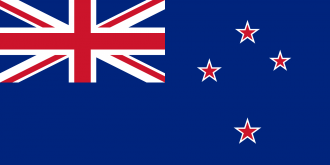New Zealand is a country in the south-western Pacific Ocean, lying between Australia (to the northwest) and Polynesia (to the northeast). Sharing the Tasman Sea with Australia, the country comprises of two main land masses (the Te Ika-a-Maui and the Te Waipounamu, commonly known as the North and the South Island respectively), and numerous other smaller islands. Wellington is the capital city and second most populous urban area of New Zealand, after Auckland.
With a similar size to the UK and a population of some 4.5 million, New Zealanders enjoy a good standard of living. With roots dating back to the Maori (the initial inhabitants of the associated territory), New Zealand’s culture has evolved up to date, through a unique blending of British, European, Pacific and Asian traditions; notably many internationally renowned musicians, writers and artists have their roots in New Zealand.
Promoting economic and social participation of its nationals, New Zealand’s governments have made great improvements in key areas affecting their citizens’ well-being. According to the OECD Better Life Index for 2015, New Zealand ranks at the top worldwide in health status and social connections, and above average in other directions such as housing, personal security, jobs and education. Regarding the latter, when compared to some decades earlier, New Zealand’s nationals have higher qualification rates; it is indicative that a significant 13.6% hold a bachelor’s degree or a level 7 qualification, 5.7% a Master’s or Post-graduate degree and a further 0.7% holds a Doctorate degree (See chart below).
On the other hand though, employment and hence income and wealth inequalities still remain high, especially between Maori/Pasifika and European origin nationals.
New Zealand's economy has been historically based on an export-oriented agricultural and farming system. However, over the last decades, under governmental transformations, New Zealand has been transformed into a service-based economy, complemented by productive agricultural and manufacturing industrial sectors. One of the manufacturing sectors that has particularly developed, is that of aluminium refinement. Moreover, taking advantage of their natural resources, New Zealanders have developed their hydroelectric energy sector. Finally, tourism has evolved into a significant contributor to the national economy of this Pacific Rim country (close to 3.4 Million international visitor arrivals for the year ending in September 2016), with Australian visitors standing at the top of the related list.

